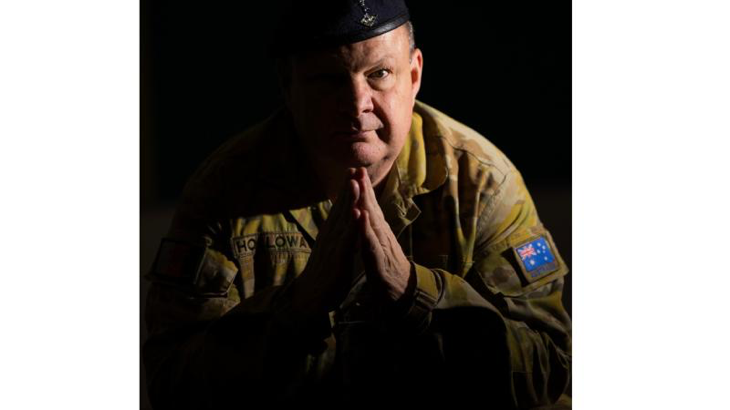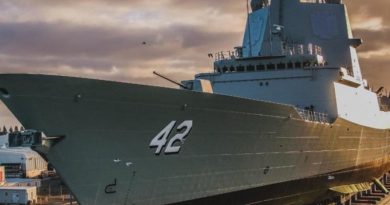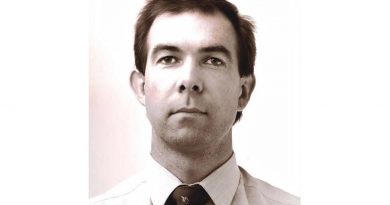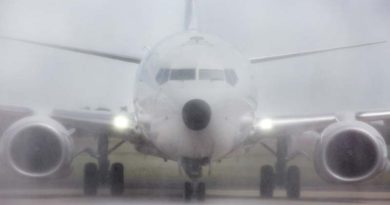Never too old for cyber

When Warrant Officer Class Two Brett Holloway joined the Army in 1981, the valve-operated radios he used as a trainee electronic warfare specialist needed to warm up before use.
CAPTION: Australian Army Warrant Officer Class Two Brett Holloway at the Defence Space and Cyber College at HMAS Harman. Story by Corporal Michael Rogers. Photo by Leading Seaman Nadav Harel.
One night, he turned the radios off to save power but did not realise it would take almost two hours to power up the radio again the next day.
“Needless to say, my corporal at the time let me know what he thought of my idea of saving electricity,” WO2 Holloway recalled.
Now, as the lead for the development and delivery of the Joint Cyber Intelligence Analyst pathway at the Defence Space and Cyber College, WO2 Holloway proved that you are never too old to learn new things by completing a graduate diploma in cybersecurity at age 61.
“I have always had an interest in computers. I was fascinated with their logic and how computers worked; it was something I could relate to,” WO2 Holloway said.
“Back in the ’80s, computers were either the size of a room, or they were old and clunky and were not what they are today.”
After retiring from full-time service and continuing to serve as a reservist, WO2 Holloway earned a certificate IV and a graduate diploma in cybersecurity.
He then worked at the Information Warfare Division as the ADF cyber reserve manager before moving to the Defence Space and Cyber College at HMAS Harman.
From pre-heated radios and Morse code to cyber warfare technology, WO2 Holloway has witnessed a dramatic evolution in the Army’s electronic attack equipment over his career.
He has contributed to introducing new capabilities, including a stint in Iraq in 2005, where he installed the first electronic countermeasure systems on Australian vehicles to combat remotely detonated improvised explosive devices.
“We had to show personnel that the system worked. Obviously, you couldn’t detonate things, but by using radios and saying ‘see how our radios don’t work?’ people then understood,” WO2 Holloway said.
“Until then, it was just another piece of kit being put on their vehicle by guys who’ve never been overseas before and don’t get it.
“It felt good knowing we were doing something like that to protect the troops; it was the epitome of my job as an electronic warfare soldier.”
WO2 Holloway encouraged soldiers to consider changing trades to something that interests them in the Army, particularly cyber, rather than discharging from the military, citing that the demand for cyber skills will increase in the future.
“Changing trades to cyber is a positive change as it will always be a required capability within the Army and ADF,” WO2 Holloway said.
“I would strongly recommend that if someone has an interest in computers, they consider switching to cyber, regardless of their current age, knowledge or background.”
.
.

.
.





